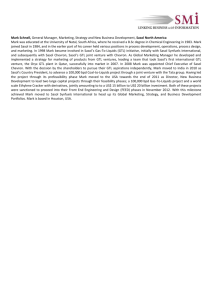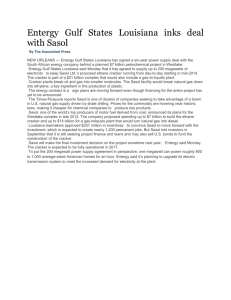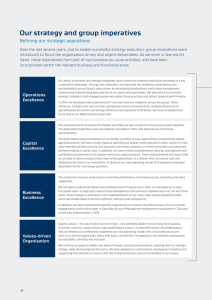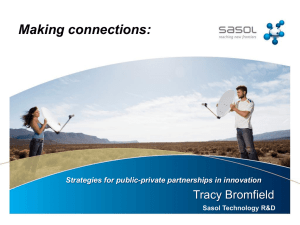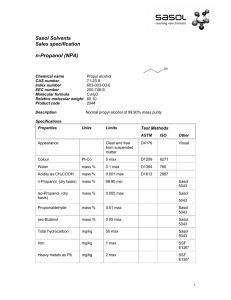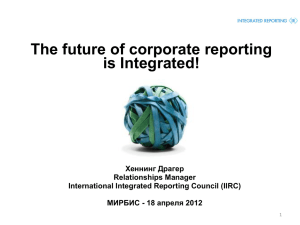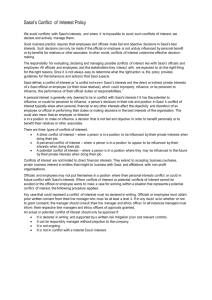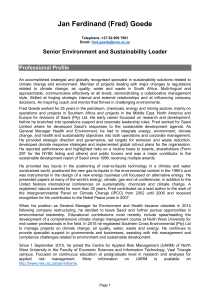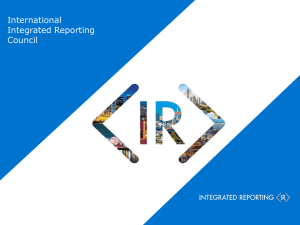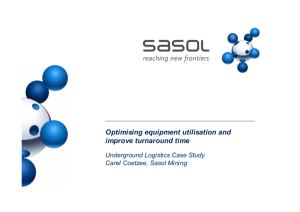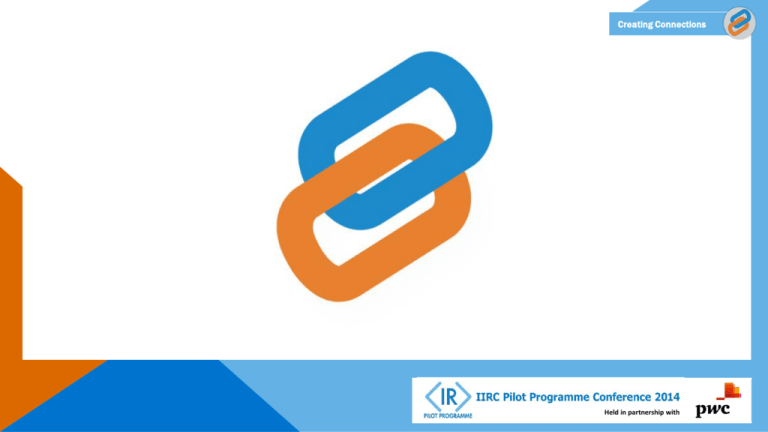
Creating Connections
Held in partnership with
Creating Connections
This document has been prepared for general guidance on matters of interest only, and does not constitute professional advice.
You should not act upon the information contained in this document without obtaining specific professional advice. No
representation or warranty (express or implied) is given as to the accuracy or completeness of the information contained in this
document, and, to the extent permitted by law, PwC, IIRC or their licensors do not accept or assume any liability, responsibility
or duty of care for any consequences of you or anyone else acting, or refraining to act, in reliance on the information contained
in this document or for any decision based on it.
Copyright 2014. All rights reserved. Permission is granted to make copies of these slides, provided that all logos, disclaimers,
copyright notices and acknowledgements on the slides are retained, and each copy bears the following credit line: "Copyright
2014. All rights reserved. Used with permission of the IIRC and PwC." In this document, PwC refers to the PwC network and/or
one or more of its member firms, each of which is a separate legal entity. Please see www.pwc.com/structure for further
details. IIRC refers to the International Integrated Reporting Council.
Acknowledgements of third party source materials are contained on the relevant slides.
Held in partnership with
Creating Connections
Creating Connections
The Integrated Business
Leigh Roberts
Project Director: Integrated Reporting, South
African Institute of Chartered Accountants
Held in partnership with
Creating Connections
Overview
Integrated thinking – a reminder – and recognising your thoughts on the
challenges
Perspectives:
-
Professor Mervyn King, IIRC Chairman
John Lelliott, Finance Director, and Mark Gough, Head of Sustainability – The Crown Estate
Fay Hoosain, Senior vice-president: Office of the CEO – Sasol
Q and A with the speakers – send your questions using the activity feed in the app
Celebrating the benefits of integrated thinking – your thoughts
Your roadmap to <IR> - step 2
Held in partnership with
Creating Connections
What is integrated thinking?
“The active consideration by an organization of the relationships between its
various operating and functional units and the capitals that the organization
uses or affects.
“Integrated thinking leads to integrated decision-making and actions that
consider the creation of value over the short, medium and long term.”
Source: The International <IR> Framework
Held in partnership with
Creating Connections
The 6 capitals
Financial
Manufactured
Intellectual
Human
Social & relationship
Natural
Held in partnership with
Creating Connections
Recognising the challenges of integrated thinking – your thoughts
Getting senior
C-suite buy-in
Driving cultural
change in the
company
Making those charged
with governance
understand the purpose of
an integrated report
Embedding
within regular
operational
reporting
Engaging
other
departments
How we collect
information in a
verifiable format
Matching the
processes and
quality of nonfinancial data
compared to
financial data
Understanding the
financial impact of
our non-financial
performance
(interdependencies)
Developing cross
functional
involvement for
integrated
thinking.
Source: Delegate registration forms
Held in partnership with
Creating Connections
The Integrated Business
Professor Mervyn King
IIRC Chairman
Held in partnership with
Creating Connections
Business perspective
John Lelliott
Finance Director – The Crown Estate
Mark Gough
Head of Sustainability – The Crown Estate
Held in partnership with
Creating Connections
Business perspective
How we create value
The Crown Estate
Our business model demonstrates
how we draw upon different resources
and relationships and transform these
to create value
Source: The Crown Estate – Annual Report and Accounts 2014
Held in partnership with
Creating Connections
Business perspective
Fay Hoosain
Senior Vice-President: Office of the President and CEO – Sasol
Held in partnership with
Creating Connections
The many faces of Sasol – the early 2000s
Started to
embed
integrated
thinking as early
as 2004
Siloed thinking and
business and functional
independence reigned
supreme
Source: Sasol
Split
accountabilities
caused teething
problems and
limited line of
sight
Financial and nonfinancial KPIs were
housed in different
parts of the
organisation
No one culture,
no single identity
Teams were
pulling in
different
directions
First Integrated
Report published
in 2011
Held in partnership with
One team, One Sasol – 2012
Change in
leadership –
catalyst for
change in
thinking
Integrated thinking and
integrated reporting starts
at the top – and is driven
from the top
Creating Connections
Breaking down
the silos
Better together, we
deliver
One team, One
Sasol
Enhanced
engagements
and dialogue
A clear common
goal – united and
driving in the
same direction
Focusing on what
is in the group’s
best interests
Extensive change
programme
commences
Source: Sasol
Held in partnership with
Creating Connections
One Sasol, one bottom line – 2013
Change in
mindset
Investment
decisions driven
by an integrated
approach
Focused on the big picture
and telling the Sasol story
Source: Sasol
Improved
decision-making
and governance
frameworks
Getting the Board
on board
One culture
Aligned and
co-ordinated
The 6 capitals
form the basis of
our investment
criteria
Reaping the
benefits of
integrated
thinking
Held in partnership with
Creating Connections
A new era for Sasol – 2014
Repositioned
Restructured
Focused
Source: Sasol
Held in partnership with
Creating Connections
Panel and Q&A
Held in partnership with
Creating Connections
Celebrating the benefits of integrated thinking – your thoughts
More
connectivity
internally
Increase in the level
of involvement of
internal teams in
corporate reporting
(more engagement,
more participation)
Helped us in seeing the
interconnectedness in
our business and how
important it is to look at
problems in an
integrated manner
Stronger
connection
between
finance and
corporate
sustainability
teams
Input to the way
business models and
performancemanagement system
can be devised
Influencing the way we
measure/make
decisions in the
company, providing a
broader understanding
of our results
Better communication
with the board and
management
Participating in a wider
stream of company process
innovation, having high
level sponsorship and
legitimacy
We have been
encouraged to think
"integrated" and this
enhances our
decisions
Source: Delegate registration forms
Held in partnership with
Creating Connections
Your roadmap to <IR>
Ian Ball
Chairman, Chartered Institute of Public Finance and Accountancy, Chair of IIRC
Working Group
Held in partnership with
Creating Connections
Step 2 – assess your integrated thinking
For the focus areas you identified in step 1,
assess buy-in throughout the business and internal
reporting processes, and data availability,
robustness and reliability.
Additional time at start and end of tomorrow for
this step
Workbook includes tips to help you
And ideas for bringing in learning
from conference sessions
Held in partnership with
Creating Connections
Held in partnership with

